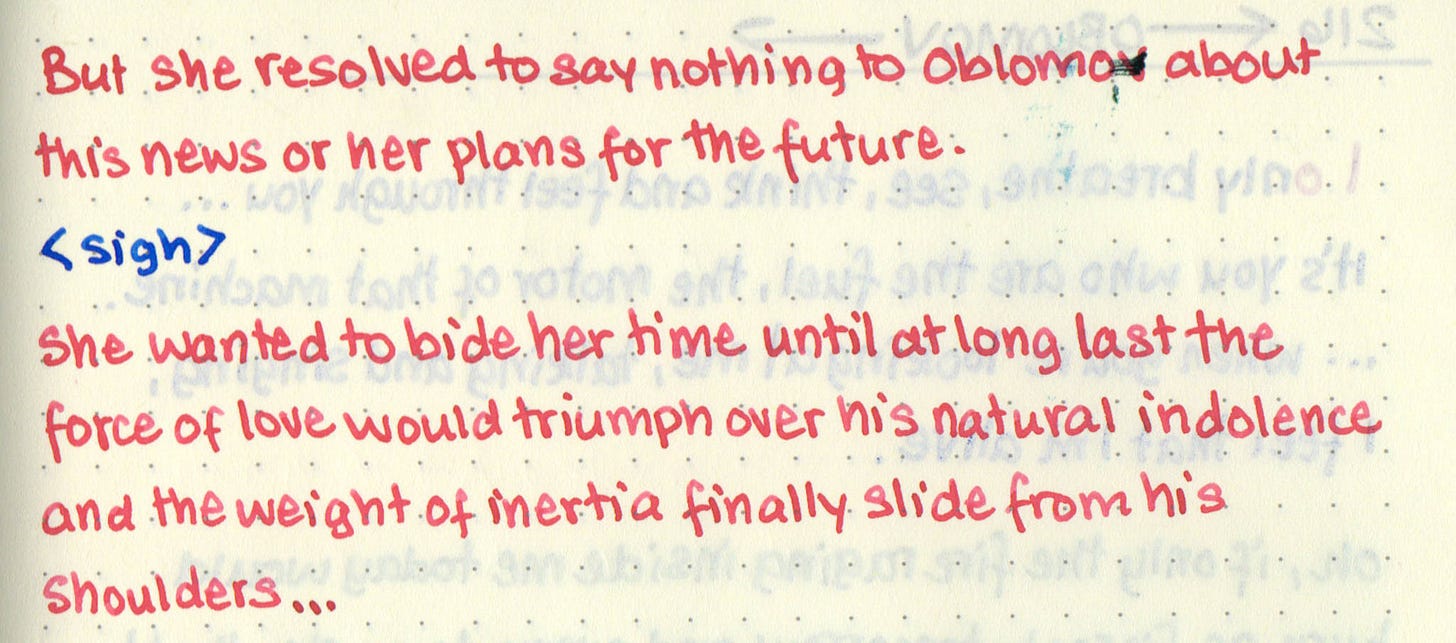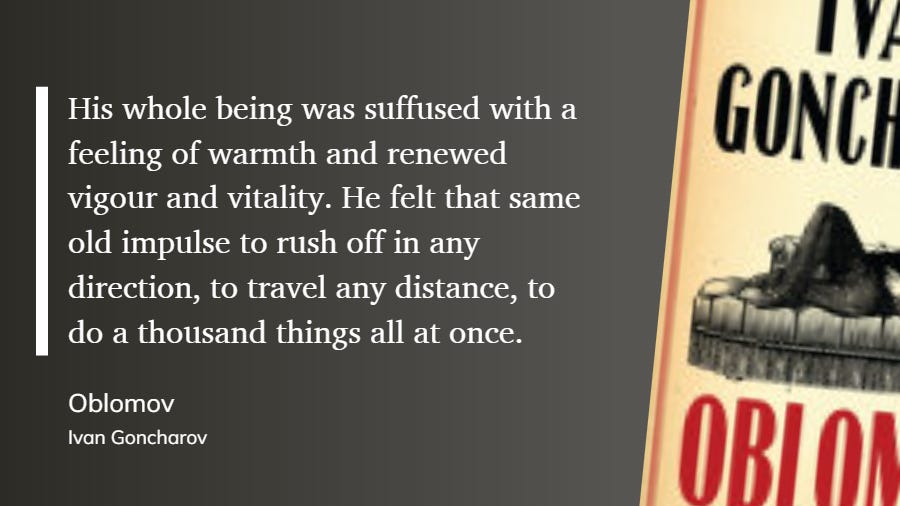This chapter got me thinking about two things: neurodiversity and inertia. Let’s look at inertia first. It’s actually used in the text:
… when he was still in the grip of total inertia.
Inertia is a common problem in autism and ADHD, the transition from one state to another state, from one activity to another activity, even when the result of the new activity is almost guaranteed happiness. It’s instant gratification we’re seeking, not delayed gratification; endorphin-induced serenity gives way to dopamine-induced happiness. Instead of exercising, we doom-scroll with snacks. I know this is also common to neurotypicals, but it’s amplified in the neurodiverse.
Gosh, I said I was going to talk about inertia first, didn’t I? But they’re intertwined. How does Ilya leave his safe space? Having the bridges removed because of the weather is a comfort; it takes away the possibility of his having to do the hard thing, he doesn’t have to make the decision and making decisions can be paralysing.
The translator uses the words anxiety, reassured and tranquilly:
The moment he woke up in the morning Oblomov's first thought was to enquire anxiously whether the bridges had been put back. Once he had been reassured that they had not, he passed the days tranquilly, listening to the ticking of the grandfather clock, the grinding of the coffee mill and the chirping of the canaries.
And when the bridges are put back, the anxiety returns and he has to find excuses not to go to Olga’s on Sunday. Even his love for Olga isn’t enough to carry him through.
Inheritance
The big news in this chapter is that Olga’s inheritance is about to come through. We get the sense that she’s not going to tell Ilya, and that’s exactly how it plays out.
The <sigh> is mine. As I was reading it, I was like, ‘please tell Ilya, please tell Ilya,’ all the while knowing exactly how it was going to go. That’s storytelling for you: keep the tension building.
The Meeting
When Ilya doesn’t show up on Sunday, Olga takes matters into her own hands and goes to see him.
If I had to die for you I’d do so gladly!
Now that Olga’s physically in his orbit, his passion bursts forth and burns with an intensity that eviscerates the inertia.
He declares that he would die for her, but this is not what Olga needs. She’s looking for a stable, balanced relationship.
Executive Dysfunction
This passage really struck me as poignant as it smacks of neurodiversity. There is autism and ADHD in my family and I’ve read a lot of books on the topic. I have a feeling that it’s this that made Oblomov the only Russian novel I really related to when I was studying for a degree in Russian language and literature in my 20s. I knew nothing then about neurodiversity, but I could relate to this character.
Goncharov describes a feeling of euphoria in Ilya, that anything is possible. Read the paragraph that begins ‘The moment the creaking of the carriage wheels died away in the snow.’ Here’s an excerpt:
‘A thousand things all at once.’ I know that feeling. I also know that it doesn’t last. And so does Ilya.
It’s heartbreaking, isn’t it?
How do you think it’s going to play out? Will they end up happily married? Or will Ilya sabotage the relationship for the sake of comfort over effort?
Video Review
Here’s my video review of the chapter, recorded right after reading it. You readers are getting these videos before my YouTube viewers and hopefully without ads. I say hopefully as I’ve not turned on ads for these videos until they’re public on YouTube, but YouTube may very well put them in anyway for their own business needs.










